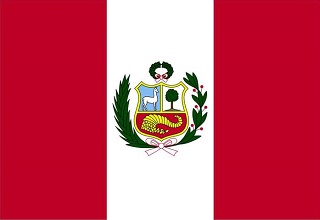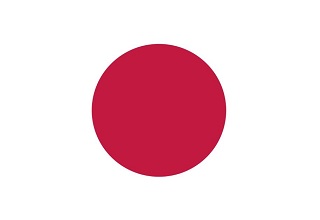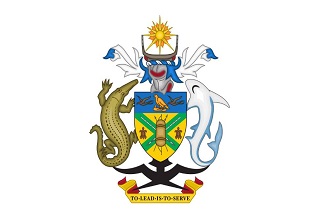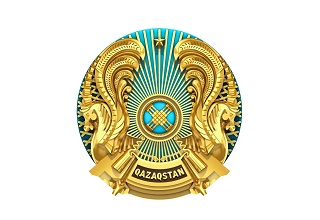Regarding the Inspection and Quarantine Requirements for the Stone Fruits of Kazakhstan
I. Basis for inspection and quarantine
(1) The Biosafety Law of the People's Republic of China;
(2) The Entry-Exit Animal and Plant Quarantine Law of the People's Republic of China and the Regulations for its implementation;
(3) The Food Safety Law of the People's Republic of China and its implementing regulations;
(4) Measures for the Supervision and Administration of Inspection and Quarantine of Imported Fruits;
(5) Protocol between the General Administration of Customs of the People's Republic of China and the Ministry of Agriculture of the Republic of Kazakhstan on Plant Quarantine Requirements for Kazakhstan's Fresh stone Fruits exported to China.
2. Names of goods allowed to enter the country
Fresh stone fruit (" stone fruit "), including Prunus persica, Prunus armeniaca.
3. Permissible origin
Stone fruit region of Kazakhstan.
4. Approved orchards and packaging plants
Stone fruit orchards and packaging plants exported to China shall be reviewed and filed with the Ministry of Agriculture of Kazakhstan (hereinafter referred to as Kazakhstan) and approved for registration by the General Administration of Customs of the People's Republic of China (hereinafter referred to as China). The registration information shall include name, address and registration number for accurate traceability in the event that the export goods do not comply with the relevant provisions of this Announcement. The registration list shall be provided by Kazakhstan to China before the annual export season, and shall be published on the Chinese website after being examined and approved by China.
List of quarantine pests of concern to China
1. The apple moth Cydia pomonella
2. Lobesia botrana
3. Lepidosaphes malicola
4. Lepidosaphes ulmi
5. Rhodococcus turanicus
6. The European apple tiger is Rhynchites bacchus
Seven. Pterochloroides persicae
8. Verticillium dahliae. Verticillium dahliae
9. Monilinia fructicola,
10. Erwinia amylovora
11. Plum pox virus Plum pox virus
6. Pre-export requirements
(1) Orchard management.
1. The orchards exported to China should establish a sound quality management system and traceability system under the supervision of Kazakhstan, implement good agricultural practices (GAP), maintain the hygienic conditions of the orchards, such as no pollution sources affecting fruit production around, timely cleaning up the fallen fruit, rotten fruit, etc. And implement integrated pest management (IPM), including regular pest surveillance surveys, physical, chemical or biological pest control, and agricultural operations and other control measures.
2. Kazakhstan shall, in accordance with the requirements of International Standard for Phytosanitary Measures No. 6 (ISPM 6), formulate a management plan for the quarantine pests of concern to China and organize the implementation of orchard monitoring throughout the year. If quarantine pests or their corresponding symptoms are detected during surveillance, integrated management measures, including chemical, physical or biological control, should be taken immediately to control pest population density or maintain low epidemic levels.
3. Plant quarantine measures for orchards exported to China must be implemented under the guidance of technicians authorized by Kazakhstan. All registered orchards must keep pest monitoring and control records and provide them to China upon request. Control records must include details of the names, active ingredients, dates of use and concentrations of all chemicals used during the growing season.
4. For apple moth and grape moth, the imported stone fruit must come from non-endemic areas of apple moth and grape moth or from orchards effectively controlled by systematic control measures.
(1) Pestilent-free areas shall be established by Kazakhstan in accordance with International Standard for Phytosanitary Measures No. 10 (ISPM 10), and pest monitoring shall be carried out by Kazakhstan in accordance with relevant requirements (see Annex 1). Pestilent-free areas shall be approved by China.
If apple moth or grape-wing moth are found in the relevant non-epidemic producing areas, Kazakhstan shall immediately suspend the status of non-epidemic producing areas, notify China within 48 hours, and initiate emergency plans. When the outbreak of apple moth or grape wing moth is eliminated in Kazakhstan and approved by China, the non-epidemic areas can be restored.
(2) In orchards effectively controlled by systematic control measures, pheromone trapping and monitoring should be used to monitor apple moth and grapevine moth, and monitoring records should be provided to China upon request.
For apple moth, monitoring should be carried out from flowering period to harvest period. The set density of traps in orchards is 1 per hectare, and orchards with an area of less than 3 hectares must install at least 3 traps, the lure should be replaced once a month, and the trap should be checked once every two weeks. If 3 or more apple moth are found in the trap, effective control should be carried out immediately (such as using interference mating techniques, etc.).
In order to control the pest in the registered orchards, the monitoring should be carried out from the flowering period of stone fruit to the harvest period. The set density of traps in the orchard is at least 2 per hectare, and at least 1 check every 2 weeks. Kazakhstan shall, as required, provide monitoring reports to China before the annual export season. Once it is detected, effective control should be carried out immediately (such as the use of interfering mating techniques).
If the control of orchards is not complete, Kazakhstan shall suspend the eligibility of the orchards to export to China and notify China immediately. Upon request, Kazakhstan shall provide China with pest investigation reports or management records.
5. For fungi and viruses, see Annex 2 for specific control measures. If any suspicious symptoms are found, a sample must be taken for laboratory testing. If quarantine viruses of concern to China are found in orchards, comprehensive management measures must be taken to control the occurrence of viruses and ensure that stone fruits do not carry these viruses.
6. For scale insects, weevil and other harmful organisms, the orchards exported to China should be monitored under the supervision and guidance of Kazakhstan technicians, from flowering to harvest, monitoring once every two weeks, focusing on the investigation of the occurrence of these harmful organisms in the branches, stems, leaves and fruits. If any harmful organisms or their corresponding symptoms are found, measures should be taken immediately, such as biological, physical or chemical methods to control the occurrence of harmful organisms.
7. Once other quarantine pests are found, Kazakhstan shall immediately notify China and take comprehensive measures, including chemical or biological control, to control them.
(2) Packaging plant management.
1. The processing, packaging, storage and shipment of stone fruits exported to China shall be carried out under the quarantine supervision of Kazakhstan or its authorized personnel. The packing plant of stone fruit exported to China should be clean and hygienic, the ground should be hardened, and there should be a raw material field and a finished product warehouse. The functional areas for processing, processing and storage of stone fruit exported to China are relatively independent, reasonably distributed, and isolated from the living area with appropriate distance.
2. During the packaging process of stone fruits exported to China, diseased fruit, worm fruit, rotten fruit, deformed fruit, branches and leaves or other plant residues and soil should be removed through manual selection, grading and cleaning.
3. The packaging materials should be clean, sanitary and unused, and meet the relevant requirements of China's plant quarantine. If wood packaging is used, it must comply with International Standard for Phytosanitary Measures 15 (ISPM 15). If the packaged stone fruit needs to be stored, it should be immediately stored in the warehouse and stored separately to avoid being re-infected by harmful organisms.
4. Information such as the type of fruit, the country of export, the name or registration number of the orchard and the packing plant must be marked in Chinese or English on each packing box. Each packing box and pallet shall be marked with the words "Exported to the People's Republic of China" or "exported to the People's Republic of China" in Chinese or English.
5. When containers containing stone fruits exported to China are packed, they shall be inspected by officials authorized by Kazakhstan to ensure that they are free of quarantine harmful organisms.
6. The registered packaging plant shall establish a traceability system to ensure that the exported stone fruit can be traced back to the registered orchard, and record the processing and packaging date, the name of the source orchard or its registration number, the number of stone fruit, the export date, the export quantity, the country to which it is exported, the container number and other information.
(3) pre-export quarantine.
1. Two years from the date of implementation of this announcement, Kazakhstan shall, in accordance with the proportion of 2% of each batch of goods, carry out sampling inspection of stone fruits exported to China, with a minimum sampling amount of 1200 fruits, and at least 60 fruits of them shall be split inspection. If no phytosanitary problems have occurred within two years, the sampling proportion is reduced to 1%.
2. If the quarantine pests, branches and leaves or soil concerned by China are found, the goods shall not be exported to China, and the relevant orchards and packing plants shall be suspended from exporting to China in this export season as appropriate. If it comes from a non-epidemic producing area, the relevant non-epidemic producing area status will be cancelled. Kazakhstan should find out the reason and take improvement measures. At the same time, records of seizures are kept and provided to China upon request.
(4) Requirements for plant quarantine certificates.
After passing the quarantine, Kazakhstan shall issue a phytosanitary certificate in accordance with International Standard for Phytosanitary Measures No. 12 (ISPM 12), indicating the name or registration number of the orchard and the packing plant, and indicating in the additional declaration: “This consignment complies with the requirements specified in the Protocol of Phytosanitary Requirements for Export of Stone fruits from Kazakhstan to China, and is free from quarantine pests of concern to China. "And is free from quarantine pests of concern to China." (The goods comply with the requirements of the quarantine pests of Kazakhstan's fresh stone fruits to China.)
7. Entry inspection and quarantine and nonconformity treatment
When the stone fruit arrives at the Chinese port of entry, the Chinese Customs shall conduct inspection and quarantine in accordance with the following requirements.
(1) Verification of relevant certificates and identification.
1. Check whether the imported fruit has obtained the Entry Plant and Animal Quarantine Permit.
2. Check whether the phytosanitary certificate complies with the provisions of Article 6 (4) of this announcement.
3. Check whether the marks on the packing boxes comply with the provisions of Article 6 (2) of this announcement.
(2) Entry inspection and quarantine.
1. Fruit exported from Kazakhstan to China should enter China at ports that allow the import of fruits from China.
2. When the stone fruit arrives at the Chinese port of entry, the Chinese Customs will check the relevant documents, labels, and carry out on-site plant inspection and quarantine and inspection.
3. Inspection and quarantine shall be carried out on imported stone fruits in accordance with relevant laws, administrative regulations and rules, and those that pass the inspection and quarantine shall be allowed to enter the country.
(3) unqualified treatment.
1. If found from unauthorized orchards, packaging factories, the goods are not allowed to enter the country.
2. If the apple moth or grape wing moth is found alive, the goods shall be returned and destroyed. At the same time, China will immediately inform Kazakhstan to suspend the export of stone fruits from relevant orchards and packaging plants to China. If it comes from a non-epidemic producing area, the relevant non-epidemic producing area status will be cancelled. Kazakhstan should carry out an investigation to find out the cause and implement corresponding improvement measures. China will decide whether to lift the suspended measures based on the results of its assessment of the improvement measures taken by Kazakhstan.
3. If other quarantine pests are found, or if a new quarantine pest has occurred in Kazakhstan, the shipment will be returned, destroyed or disposed of.
4. If it is found that the goods do not meet the national food safety standards of China, the goods shall be returned or destroyed.
5. If the above unqualified situation is found, China will immediately inform Kazakhstan and suspend the import of stone fruit from relevant orchards and packaging plants as the situation may be. Kazakhstan shall identify the causes of non-conformity and take improvement measures to prevent similar situations from happening again. China will decide whether to lift the suspension measures based on the results of Kazakhstan's rectification.
It is hereby announced.
GACC
Dec. 1, 2023




